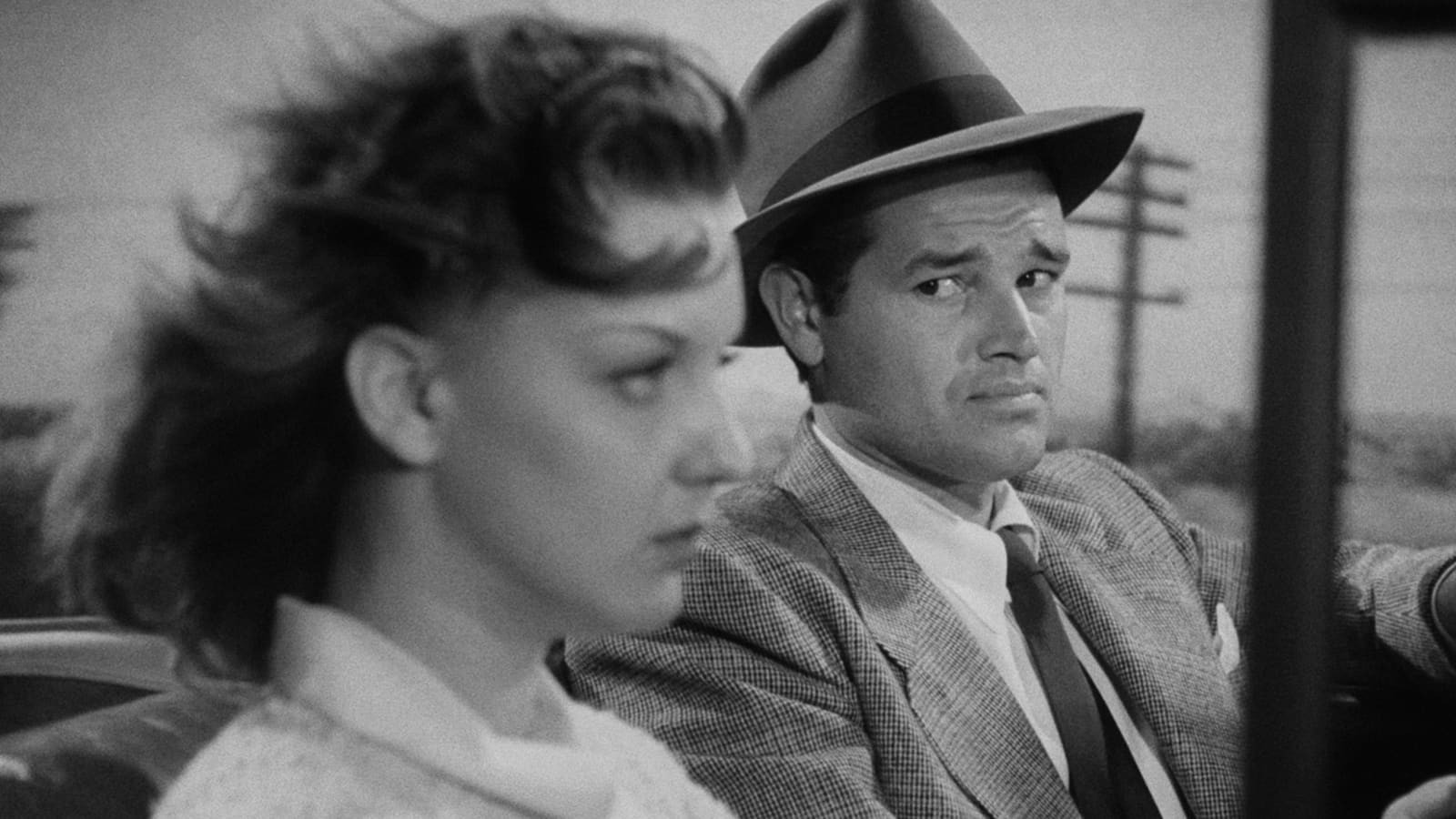
There's a movie called Detour which was made in 1945.
I read some enthusiastic Comments about it, and so became interested, and played it from You Tube -- but I was doing "chores" and the sound wasn't very loud, so I didn't catch all of it, just got a sort of outlined feeling of it.
[excerpt, Wikipedia] ------------ Detour was well received upon initial release, with positive reviews in the Los Angeles Times, The Hollywood Reporter, and Variety. It was released to television in the early 1950s and ran in syndicated TV markets until the dawn of mass cable systems in the 1980s.
TV reviewers casually recommended it in the 1960s and 1970s as a worthwhile "B" movie. Detour began to be seen as a prime example of film noir during the 1970s and critics began writing about it at increasingly great length.
During the 1980s, revival houses, universities, and film festivals began to honor [the film's director] Edgar G. Ulmer with retrospective tributes to his work....In 1992, Detour was selected for preservation in the United States National Film Registry by the Library of Congress as being "culturally, historically, or aesthetically significant." -------------------------------------------- [end, excerpt]
______________________________
I got this book called Detour: Hollywood, written by William Dickerson and subtitled "How to Direct a Microbudget Film (or any film, for that matter)."
Reading the description, I had the impression that this author was the person who directed Detour. Well -- he directed a film called Detour that came out in 2013. So -- wrong -- whole different person....
(And it does appear that there are several more movies in existence titled "Detour"...)
The book Detour: Hollywood was published in 2015. Edgar G. Ulmer was born in Austria-Hungary in 1904, so in 2015 he would have been 111.
Anyway -- I have the book by this other director, so we will see what he knows.
------------------------------ [excerpt, Detour: Hollywood] ------------------------ The buck stops with the producer, but the idea falls under the authority of the director. However, any director worth his or her peers' respect is apt to encourage as many ideas as possible from the heads of the creative departments. It doesn't matter how many hours, days, weeks, months, or years you've spent prepping your film, you will not have thought of everything.
I spent the better part of three years prepping my film Detour and I didn't come close to thinking of everything that could facilitate the telling of its story. However, it's important to remember that every person involved with the project, no matter what his or her specific job is, is there to make the same film you are, and they can help.
Ideally, the smartest decision that you can make is to suspend your ego and surround yourself with people who are all smarter than you. The most important job a director has, aside from casting the film properly, is encouraging ideas, being able to recognize when the ideas are good, and then incorporating these good ideas into the film.
-30-
No comments:
Post a Comment